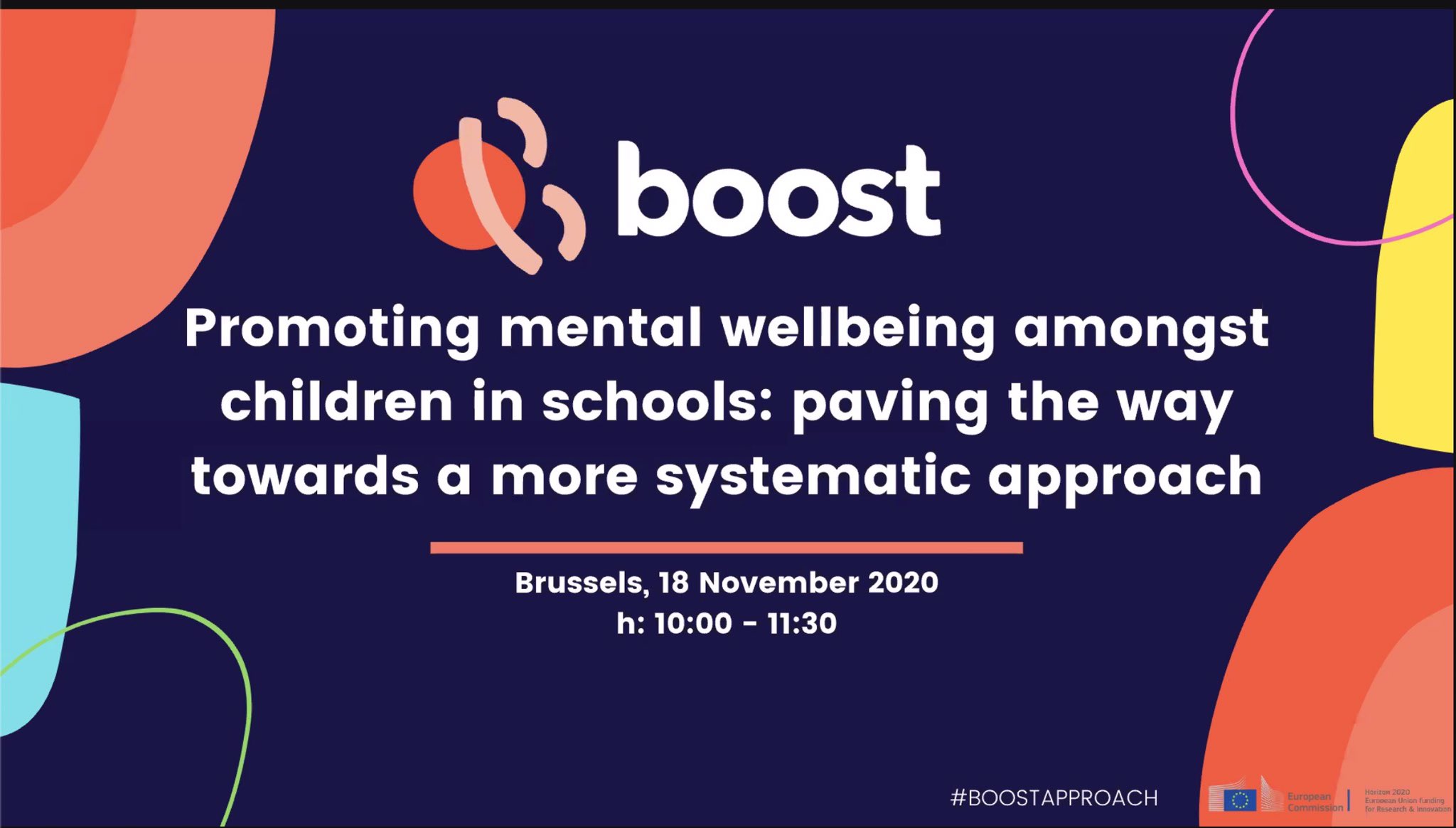
On 18 November 2020, we met online for the webinar “Promoting mental wellbeing amongst children in schools: paving the way towards a more systematic approach”, coordinated by the BOOST consortium. The event was organized to discuss the developments of the project and the release of the brand-new policy brief “The need for a more systematic approach to promoting mental wellbeing among children in schools”.
Due to COVID-19, it became clear that it is crucial to build mental health resilience in young children. Vladimir Garkov, Policy Officer at the European Commission (DG EAC), provided the audience with a keynote speech and underlined that the key competences are vital for all individuals to be able to successfully function in the society. The “Personal, Social and Learning to Learn” competences is central in the Key Competence Framework, released by the European Commission in 2018.
According to the BOOST Approach, it is clear that Social and Emotional (SEL)-based learning programmes help young children to build mental health resilience. There is, however, a lack of consistency in policy formulation and implementation across policy levels. This leads to insufficient resources and capacities to integrated and delivers sustainable and high-quality SEL-programmes in schools.
During the panel debate, experts discussed how to successfully implement the BOOST approach in schools while respecting the educational and mental health differences in the European Member States. The speakers all agreed that the COVID-19 crisis clearly shows that vulnerable children are hit the hardest, and especially for those students we need to step up and implement sustainable and high-quality SEL-based learning programmes.


